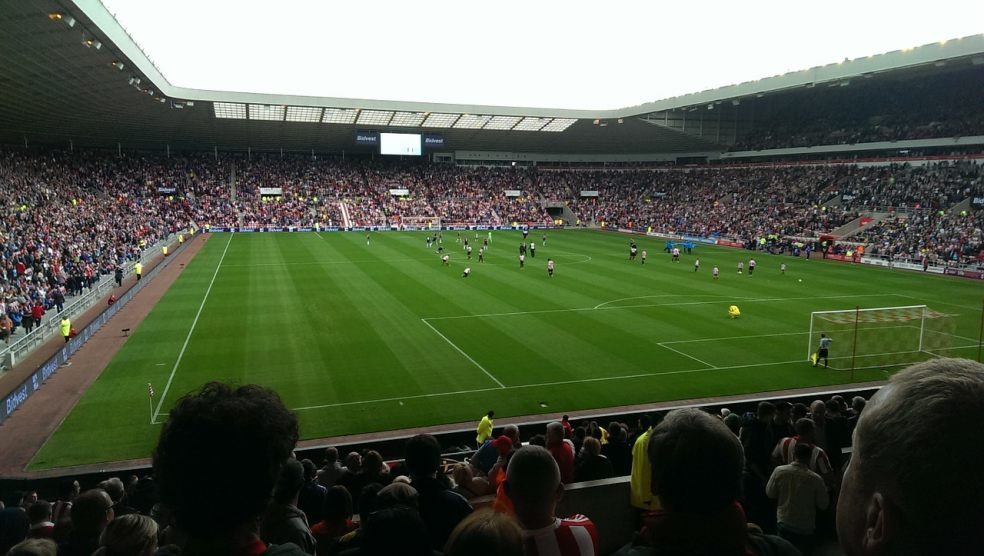
How do bookmakers set odds?
Ever wondered how do bookies make odds or how do bookmakers set odds to be more accurate. If you are a punter who cares for his money then you should have, even if you don’t have the ambition to become a future trader. The first thing you need to know is how to calculate odds and understand the math behind them. This will help you understand if the offered lines have value or not and whether your bookmaker is giving you a fair price or you should be searching for something better. Betting odds and how they work might not be the easiest thing to comprehend, however, it is also not one of the hardest. With the help of this guide, you will learn how to work out odds and view the mistakes in odds sets.
How to calculate odds in sports betting?
How do betting odds work? Even if you are still making your first steps into online betting you must have seen the odds bookmakers create to predict a certain match. You probably understand that these odds will show you how much you will gain if your prediction proves itself right. It is important to know what do match odds mean and how do bookies set odds in order to understand how the betting industry works and leverage this knowledge to your benefit.
At this point let us try to delve into how does a bookmaker calculate odds. It will be much easier with an example. Ηow odds are set is a primal knowledge that every punter should have before starting wagering.
The odds are set and function under the law of probability. A bookmaker has to set the odds for the forthcoming Premier League clash between Liverpool and Arsenal. The THEORETICAL odds will be like this. Home win 3.00 (33.33%), Draw 3.00 (33.33%), Away win 3.00 (33.33%) based on the theoretical probability. This comes if you divide the 100% in three parts, the three possible results. Obviously, these are not the odds you will see on your sportsbook. There is some work to be done yet.
It is the time for odds compilers a.k.a. traders to start their job. Based on a large number of data they shape those odds. From the current form to tradition, weather conditions, player absences or injury risks, traders with the help of sophisticated algorithms work together to set the odds.
Let's see the TRUE odds now. Home win 2.00 (50%), Draw 4.00 (25%), Away win 4.00 (25%). “There have never been such odds at a bookmaker” a sharp-eyed bettor would notice. And he would be absolutely right about that.
Because now it’s time for the bookmakers to make their profit. The ACTUAL odds, the ones that you will be called to bet on, eventuate after bookmaker “puts” the margin on the odds(usually from 2% to 8.5%). So the odds we all see - the final pre-game odds - are like 1.90-3.50-4.25.
How do bookies make money?
The first and easiest way is pricing the market in a way that doesn’t represent the true value, the true probability of the outcome. This is exactly what we analyzed above in a three-way market. Of course, the same rule is followed and applies in two-way markets as well. In the match example we used before, Liverpool are hosting Arsenal and the odds for Over/Under 2.5 goals are set at 1.57-2.35. Let's calculate the margin here. The margin formula is (1/over odds)*100 + (1/under odds)*100.
So in this example it would be (1/1.57)*100 + (1/ 2.35)*100 = 63.69 + 42.55 = 106.24. So the margin in this market is 6.24%. So this is the profit the bookmaker will make regardless of the outcome if both outcomes get the same amount of action.
But bookmaker won’t settle in a profit of this size. In our example, the vast majority of punters will back the Reds to win in the offered pre-game odds. Progressively the traders will start downscaling the prize of the home win and start increasing the ones for the draw and the away win. They add some extra value to tempt the punters to start betting against Liverpool.
The “art” of odds making is something that the most experienced bookmakers know very well. They just know how to ensure their winnings and still make you think that the offered odds are inside the value bet range.
A punter, on the other hand, should know some odds maths, so he can understand where the real value is and pick only those odds.
How do you create odds?
How to make odds and why this could be useful for any given bettor? The very first day of June 2019 Liverpool won their sixth Champions League title after a professional 2-0 win over the Spurs in Madrid. A few days earlier in Baku Chelsea hammered Arsenal 4-1 and won the Europa League title. And now the two 2018-19 European title holders are facing each other at Istanbul at the 14th of August for the first title of the 2019/2020 season, Europe’s Super Cup.
Guess you can already name the winner right? Liverpool is the easy and the obvious choice. How about the odds for such a win? In order to understand which odds have a true value and can be included on your betslips you have to start thinking like a bookmaker.
Let's try and set the odds for the forthcoming European Super Cup ourselves. Learning how do odds work in football, could be a basic tool on your fight against the bookmakers.
In the past season, the two teams played three times. Two for the Premier League and one for the League Cup. Let’s check the odds on those games.
The first game was for the League Cup at the 26th of September. Surprisingly Chelsea beat Liverpool 2-1 against the odds (1.85-3.72-4.07).
A few days later at the 29th the first league game was held at Stamford Bridge. The final result was a draw and the average pre-game odds were 2.78-3.48-2.56.
In Anfield at the 14th of April the Reds had an easy afternoon winning their rivals with a clean 2-0. The average pre-game odds for this clash? 1.73-3.77-5.18.
As we mentioned before bookies take past games into serious consideration. And as we can see bookies considered the Reds favourite in all three clashes. They did prove that they had a better team after all and they also proved the bookies right. So we will start by assuming the Reds are the favourites. Normally we would give them a price of around 2.00. Normally, but not now. It is certain that the Merseyside team will appear much stronger for the next season in their desperate attempt to win the eluding Premier League title.
Chelsea on the other hand already lost Eden Hazard and their manager Maurizio Sarri will coach Juventus. At the moment of writing, it is unknown who will take his place at the helm or who will be the chosen talisman to replace Hazard.
In a pre-season match such as this one, the key factor that will determine the final result is the level of readiness of each team. So we'll set the odds as follows. 1.70-3.50- 5.00. And the most common special market (over/under 2.5) should be like 1.70-2.10 considering that in games like these both teams are usually looking to outscore their opponents. In the same manner and with the same odds we will set the Both Teams To Score option.
Doing that in more games during the season will not just help you figure out how odds are set in betting, but also will train you to understand if the offered odds have any value or not.
How to work out odds in betting and find value?
In the previous paragraph, we tried to show you how to understand odds. Now that we understand betting odds it is time to find out how to use this knowledge to our benefit. There are two ways to follow here. Both of them are for experienced bettors. Let us go back to our example. If you are watching Premier League you will probably have a general idea about the estimated odds for the forthcoming clashes. So when you see that the home win is priced at 1.90 - and your estimation was 2.10 or 2.00 - you know that there is no value for you here. So either you seek another - valued - market or proceed to the next match.
The second way requires an account on a betting exchange. Even if you are not keen on trading, Having an account on a well-known exchange will help you follow the change of odds. Usually, it happens before the sportsbooks align their prices. That gives you a time window - could be minutes in some cases - to “feel” the market trend and bet on any wrongly priced odds. And that is why you should have an account on a smaller bookmaker. Most of them don’t use in house traders so they adjust the odds much later than the others giving you more time to make your move.



















